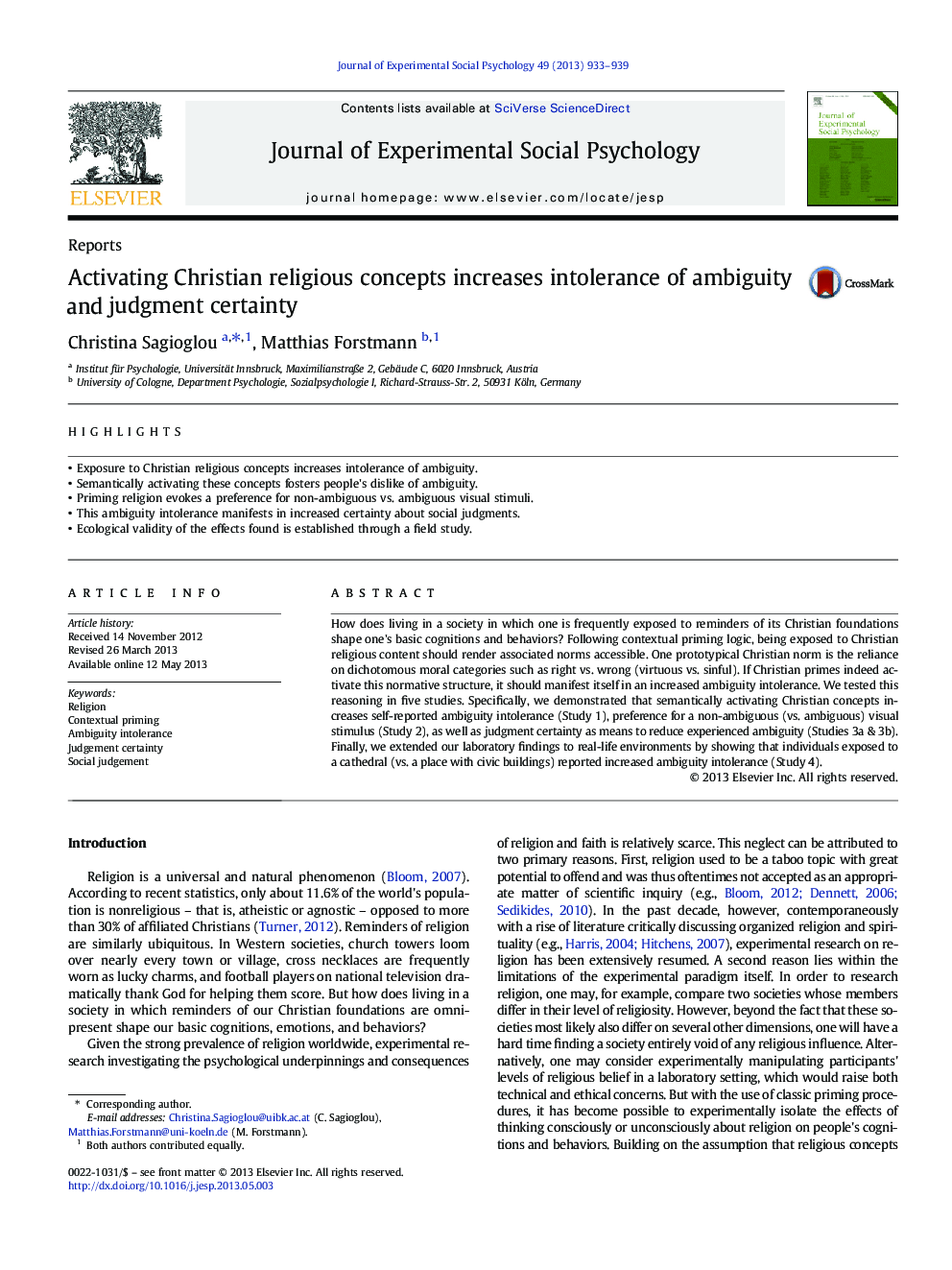| Article ID | Journal | Published Year | Pages | File Type |
|---|---|---|---|---|
| 948026 | Journal of Experimental Social Psychology | 2013 | 7 Pages |
•Exposure to Christian religious concepts increases intolerance of ambiguity.•Semantically activating these concepts fosters people's dislike of ambiguity.•Priming religion evokes a preference for non-ambiguous vs. ambiguous visual stimuli.•This ambiguity intolerance manifests in increased certainty about social judgments.•Ecological validity of the effects found is established through a field study.
How does living in a society in which one is frequently exposed to reminders of its Christian foundations shape one's basic cognitions and behaviors? Following contextual priming logic, being exposed to Christian religious content should render associated norms accessible. One prototypical Christian norm is the reliance on dichotomous moral categories such as right vs. wrong (virtuous vs. sinful). If Christian primes indeed activate this normative structure, it should manifest itself in an increased ambiguity intolerance. We tested this reasoning in five studies. Specifically, we demonstrated that semantically activating Christian concepts increases self-reported ambiguity intolerance (Study 1), preference for a non-ambiguous (vs. ambiguous) visual stimulus (Study 2), as well as judgment certainty as means to reduce experienced ambiguity (Studies 3a & 3b). Finally, we extended our laboratory findings to real-life environments by showing that individuals exposed to a cathedral (vs. a place with civic buildings) reported increased ambiguity intolerance (Study 4).
